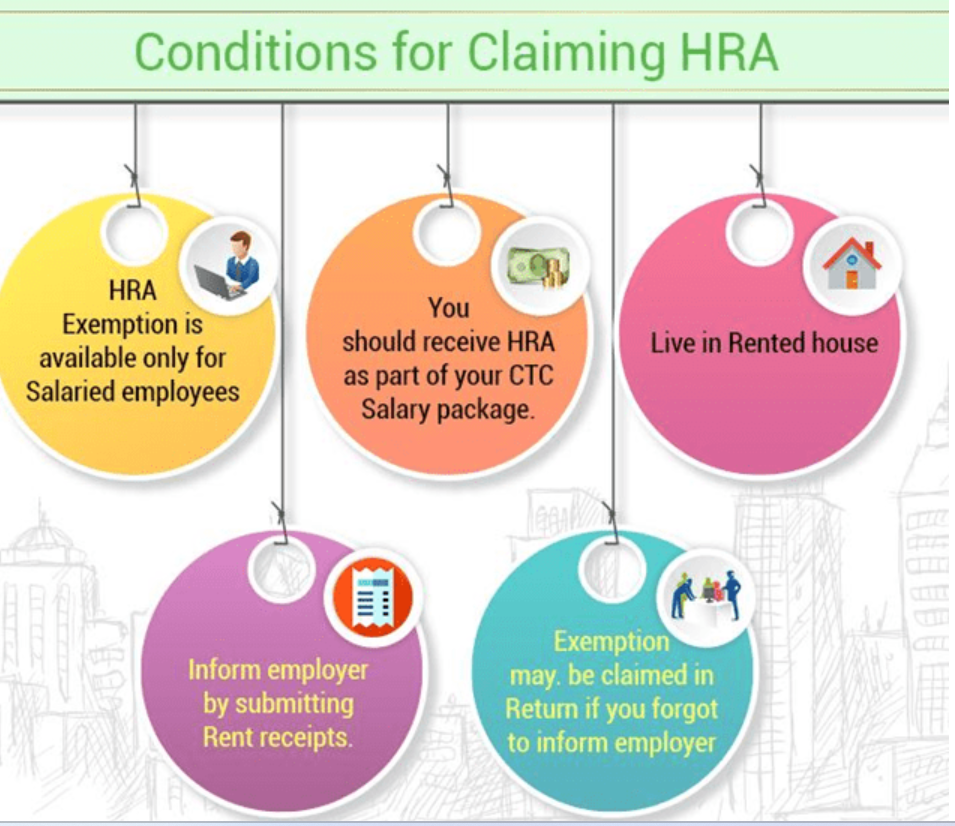HRA (House Rent Allowance) is a component of a salary provided by employers to employees to cover the cost of renting a home. It is typically given to employees who live in rented accommodations. HRA is a part of the salary package and can be claimed for tax exemption under certain conditions.
Tax Exemption on HRA refers to the reduction in the taxable income of an employee based on the HRA they receive, which means that the HRA is not fully taxable. The amount of HRA exemption is calculated based on the following conditions:
To calculate HRA exemption, the least of the following three amounts is exempt from tax:
- Actual HRA received: The amount of HRA an employee gets from their employer.
- Rent paid minus 10% of salary: The rent paid by the employee, minus 10% of their basic salary.
- 50% of salary (for employees in metro cities, 40% for others): If the employee lives in a metro city, the exemption is 50% of the basic salary; for non-metro cities, it’s 40%.
Salary is generally considered as:
- Basic Salary
- Dearness Allowance (if it forms part of the salary)
- Any other amount that is considered as salary for HRA calculation.
Eligibility for claiming HRA exemption:
- The employee must be living in rented accommodation.
- The rent receipts must be available (or in the case of a landlord who does not provide receipts, a declaration can be made).
- If the employee owns a house, they cannot claim HRA exemption.
This exemption can reduce your taxable income, leading to potential tax savings. The actual amount of tax benefit depends on various factors like the rent paid, the salary received, and the city of residence.
More details Visit links :
Instagraminstagram.com/all_things_matter_atm
Facebookfacebook.com/MyExpertAdvise
Blogbeginwithrr.com
Youtubeyoutube.com/@ATM-v9e
Whatsapp Personalwa.me/ 918296773093
Telegram Personalt.me/Allthingsmatterin20minutes
Telegram Groupt.me/jobsingardencity


